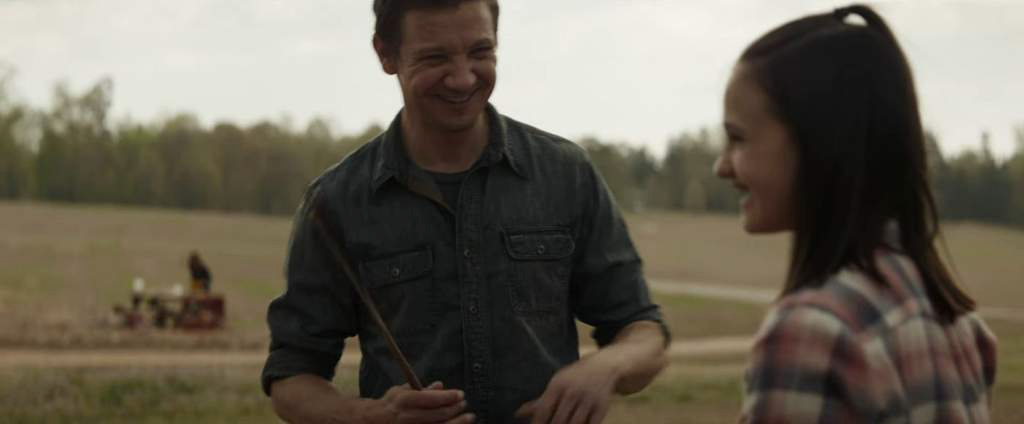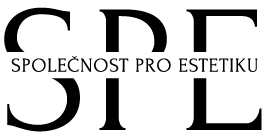Václav Janoščík
[very mild spoiler alert]
Scenario 1 – Avenging the lack of heroism
Imagine an ideal family scene. You see a mother with two boys preparing a picnic Farther is teaching his daughter, something, something like archery. They’re selecting a sauce for their hotdogs. When, suddenly, they all fade away except for the hopeless father.

This is precisely how Avengers: Endgame, begins and emotionally blackmail you. In this way the latest instalment of the Avengers franchise strives to show us not only the iconic squad of armoured heroes, but also their private and disclosed identities
This has been repeatedly praised in many reviews of this long awaited movie. But it still fits very old superhero scheme, where you can deliver your public role, only on account of not getting satisfaction in your private life.
This distinction between public and private then defines the division between the all-powerful superheroes, who rule the public sphere, and the rest of us mortals, who must suffice with our small private lives.
But I must admit Endgame pushes this logic bit further than any other movie. We see how the Captain America and few others are persuading the rest of Avengers (who survived Inifinity War) that there is a mission, that they can fight for justice and undo what Thanos destroyed.
Alcohol addicted and fat Thor, Hawkeye, randomly killing criminals, or from opposite side Iron Man happily devoted to his family – they all need to be painstakingly convinced to join the gang again.
In this broader perspective Endgame fits our presence filled not only with plethora of problems. But mainly our inability to act upon them or even face them. That is why we need actual heroes, or avengers – to get a role-model, or “spark of a hope”.
Maybe Slavoj Žižek and Jordan Peterson want to be those avengers of meaningful and orientable world or even possible action.
Scenario 2 – Avenging the lack of thinking
Man dressed in blue suit starts a talk about one old theory. The theory claims we live in an unfree and hierarchical world that we can change. But the man tries to defend hierarchies as the only way to face complex situations, and the inequality and dispossession are a necessary bitter pill.

Then another man in an unsightly polo shirt is kind of supposed to defend that theory. But before that he begins with defining their mutual enemies. Those are mainstream academia and the liberal left – who supposedly marginalize theories and endeavours of both men.
When the second man is finished, and the discussion is about to start, he cools the cheering crowd by assuring them this is no fan-fuelled battle cause they both have serious causes to fight.
In the course of the debate the polo-shirted guy is being asked by the first one why such original thinker with popularity among youth still resorts to this old and misused theory, he responds that of course the theory is not that rigid as one assumes or as it has been manipulated in history.
Nonetheless he asserts that the theory developed a description and indeed a name for our current political and economic order. The description is according to him still indisputable. The name of the order still is capitalism.
After all this duel of Jordan Peterson and Slavoj Žižek strikes me as non-controversial. Both figures stir heated debates and can resort to their fans (Žižek in leftist para-academic realm, Peterson among right wing and conservative or even simply frustrated white males).
Yet the debate not only didn’t develop into o fight, not only the two harbingers of left and right didn’t resort to their more enflamed positions, they actually agreed on quite many things. These were ecology, political distress and disorientation but also their self-proclaimed marginalization or victimization.
Our scenario – Avenging ourselves
The question is, do we even care? How much relevant – to us, to our situation, to my critical scruple, may be imaginary fight of superheroes to save us from intergalactic villain. When the problems we face are elsewhere and they reside precisely in our inability to act (on global scale, like a superhero).

Why should we listen to two intellectual celebrities who actually keep complaining about how they are marginalized? When we deal with marginalization of various humans and inhumans on a global scale.
My answer or an interest would be SHARING. Avengers franchise is maybe the best example of hos pop culture actually generates stories, characters or even ethics and values can be shared on the broadest level. (in this case we are almost obliged to watch the Endgame to be able to relate and chat with others.)
Of course this comes at great cost, since this sort of narration and the age-old clash of the good and evil is totally flattened, consumable, depoliticized and unproblematic. But here, I do not want grumble about pop. I want, ideally, to use and highjack its potential to circulate and affect. That’s why we can or even should connect Avenger to Žižek and Peterson.
This is the direction that they both exploit. One is happy to use paradoxes and controversy to make a point that is not only productive but also lucid and resonating. The other is using whatever lousy metaphor or hearsay from his psychological practice to generate rhetorical power.
We have to keep cirtical distance from all that, but we may learn too. (I definitely not implying any renouncement of integrity, but re-evaluation of affectivity.) Announced as a duel of the century this debate almost necessarily disappoints. But for me it is rather a direction, vector, still unexplored by philosophy or humanities.
What surprises me much more then quite harsh and cynical criticism of Žižek and Peterson debate (on social media) is almost universal praise and good reviews that Avengers: Endgame stirred. Critics and fans univocally value the epic quality or scale (probably the number of heroes) of the story – the ability to continue and conclude so many plot lines.
Well this only fits the category of “flexible accumulation” that Frederic Jameson used to characterize economic and cultural production in late capitalism (Postmodernism, Or The Cultural Logic Of Late Capitalism, 1992).
The narrative framework of Avengers can swallow anything. At one point there was actually so many heroes that the scriptwriter killed half of them in just one instant. But we need to reach happy end in next sequel, why not to use the cheesiest narrative manipulation, time travel.
This is actually one of the crucial reasons why Marvel (Iron Man, Thor, Captain America …) is crushing DC Comics (Batman, Superman, Aquaman …). Because it can implement flexible accumulation almost seamlessly to whatever hero and its world to build one coherent universe.
We mortals living outside of Hollywood, we do not have any option of time travel, supernatural strength or hyper-armoured suits. But we have something called philosophy, or thinking if you like. A superpower on its own.
